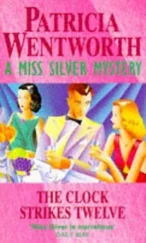“I’m sure that’s not where you see people on business,” said Jane, and Henry led the way into the dining-room.
“This is my room,” he said, and Jane sat down on a straight, high-backed chair and leaned her elbows on the table.
“Now, Henry,” she said, “I’ve come here to tell you a story, and I want you to sit down and listen to it; and please forget that you are you, and that I am I. Just listen.”
Henry sat down obediently. It was so good to see Jane again that, if she liked to sit there and talk till midnight, he had no objection.
“Now attend,” said Jane, and she began her story.
“Once upon a time there were twin sisters, and they were called Renata and Jane Carruthers. They had a cousin James—you remember him—my darling Jimmy? Jimmy wanted to marry Renata, but she refused him and married John Smith, my father, and when I was five years old she and my father both died, and Jimmy adopted me. Now we come to the other twin. Her name was Jane, and she ran away to America with a sort of anarchist Irishman named Molloy. She died young, and she left one daughter, whom she called Renata Jane. I, by the bye, am Jane Renata. The twin sisters were so much alike that no one ever knew them apart. Jimmy had photographs of them, and even he could never tell me which was my mother and which was my Aunt Jane. Now, Henry, listen to this. My Cousin Renata is in London, and it seems that she and I are just as much alike as our mothers were. In fact, it’s because Renata’s young man took me for Renata this afternoon that I am here, asking your advice, at the present moment.”
Henry smiled a somewhat puzzled smile. “Have you asked my advice?” he said; but Jane did not smile. Instead, she leaned forward a little.
“Are you still at Scotland Yard, Henry?”
He nodded.
“Criminal Investigation Department?”
He nodded again.
“Then listen. Renata is in what her young man calls ‘a position of deadly peril.’ In more ordinary language, she’s in a nasty hole. Do you know anything about Cornelius Molloy? That’s the Anarchist Uncle, Renata’s father, you know.”
“There aren’t any anarchists nowadays,” said Henry meditatively.
“I was brought up on anarchists, and I don’t see that it matters what you call them,” said Jane. “‘A’ for Anarchist, ‘B’ for Bolshevik, and so on. The point is, do you know anything about Molloy?”
“I’ve heard of him,” Henry admitted.
“Nothing good?”
“We don’t hear much that’s good about people—officially, you know.”
“Well, Arnold Todhunter says that Renata is supposed to have overheard something—something that her father’s associates think so important that they’re keeping her under lock and key, and seriously contemplating putting her out of the way altogether.”
“Did she overhear anything?” asked Henry, just as Jane had done.
“No one knows except Renata, and she won’t tell. Molloy goes back to the States to-morrow. They won’t let him take Renata with him, and Arnold Todhunter wants to marry her and carry her off to Bolivia, where he’s got an engineering job.”
“That appears to be a good scheme,” said Henry.
“Yes, but you see they’ll never let her go so long as they are not sure how much she knows. Arnold says she was walking in her sleep, and blundered in on about twenty-five of them, all talking the most deadly secrets. And they don’t know when she woke or what she heard. And”—Jane’s eyes began to dance a little—“Arnold has a perfectly splendid idea. He takes Renata to Bolivia, and I take Renata’s place. Nobody knows she has gone, so nobody looks for her.”
“What nonsense,” said Henry; then—“What’s this Todhunter like?”
“A mug,” said Jane briefly. She paused, and then went on in a different voice:
“Henry, who is at Luttrell Marches now? Did your Cousin Tony ever turn up?”
Henry stared at her.
“Why do you ask that?”
“Because,” said Jane, with perfect simplicity, “Renata is to be sent down to Luttrell Marches to-morrow, and somebody there—somebody, Henry—will decide whether she is to be eliminated or not.”
Henry sat perfectly silent. He stared at Jane, and she stared at him. It seemed as if the silence in the room were growing heavier and heavier, like water that gathers behind some unseen dam. All of a sudden Henry sprang to his feet.
“Is this a hoax?” he asked, in tones of such anger that Jane hardly recognised them.
Jane got up too. The hand that she rested upon the table was not quite steady.
“Henry, how dare you?” and her voice shook a little too.
Henry swung round.
“No, no—I beg your pardon, Jane, for the Lord’s sake don’t look at me like that. It’s, it’s—well, it’s pretty staggering to have you come here and say....” He paused. “What was it you wanted to know?”
“I asked you who is living at Luttrell Marches.”
Henry was silent. He walked to the end of the room and back. Jane’s eyes followed him. Where had this sudden wave of emotion come from? It seemed to be eddying about them, filling the confined space. Jane made herself look away from Henry, forced herself to notice the room, the furniture, the pictures—anything that was commonplace and ordinary. This was decidedly Henry’s room and not his mother’s, from the worn leather chairs and plain oak table to the neutral coloured walls with their half-dozen Meissonier engravings. Not a flower, not a trifle of any sort, and one wall all books from ceiling to floor. Exactly opposite to Jane there was a fine print of “The Generals in the Snow.” The lowering, thunderous sky, heavy with snow and black with the omens of Napoleon’s fall, dominated the picture, the room. Jane looked at it, and looked away with a shiver, and as she did so, Henry was speaking:
“Jane, I don’t want to answer that question for a minute or two. I want to think. I want a little time to turn things over in my mind. Look here, come round to the fire and sit down comfortably. Let’s talk about something else for a bit. I want all your news, for one thing. Tell me what you’ve been doing with yourself.”
Jane came slowly to the fireside. After all, it was pleasant just to put everything on one side, and be comfortable. Henry’s chair was very comfortable, and the day seemed to have lasted for weeks, and weeks, and weeks. She put out her hands to the fire, and then, because she noticed that they were still trembling a little, she folded them in her lap. Henry leaned against the mantelpiece and looked down at her.
“Where have you been?” he asked.
“Well, that summer at Upwater—you know we were lodging with the woman who had the post office—Jimmy and I stayed on after all the other visitors were gone. I expect it was rather irregular, but I used to help her. You see her son didn’t get back until eighteen months after the armistice, and she wasn’t really up to the work. In the end, you may say I ran that post office. I did it very well, too. It was something to do, especially after Jimmy died.”
“Yes, I heard. I wondered where you were.”
“I stayed on until the son came home, and then I couldn’t. He was awful, and she thought him quite perfect, poor old soul. I came to London and got a job in an office, and a month ago I lost it. The firm was cutting down expenses, like everybody else. And then—well, I looked for another job, and couldn’t find one, and this morning my landlady locked the door in my face and kept my box. And that, Henry, is why I am thinking seriously of changing places with my Cousin Renata, who, at least, has a roof over her head and enough to eat.”
“Jane,” said Henry furiously, “you don’t mean to say—so that’s why you’re looking such a white rag!”
Читать дальше












